Education and Rural Development Forum was Successfully Held in Beijing Normal University
date:2017-07-18 19:25author:小编source:Smart Learning Instituteviews:
On July 17th, 2017, the "Education and Rural Development Forum- Information Technology Promotes the Development of Rural Education ", jointly sponsored by UNESCO International Research and Training Centre for Rural Education (Hereinafter referred to as "Center for Rural Education") and the Smart Learning Institute of Beijing Normal University, was held in Beijing Normal University.
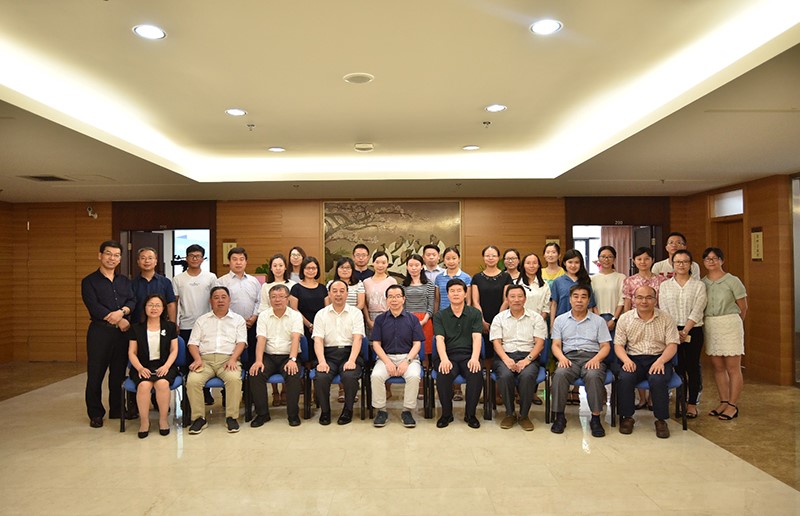
Group Photo of the Participating Experts
The report of the 18th National Congress of the Communist Party of China made it clear that an all-around well-off society would be built by 2020, which is a key step in realizing the Chinese dream. General Secretary Xi pointed out that the most arduous and onerous task of building well-off society is in the rural areas. Talents cultivation is essential for poverty alleviation. Moreover, providing high-quality education at all levels for the rural is an important basis for achieving the goal of accurate poverty alleviation. Internationally, the United Nations adopted the "sustainable development goals" in 2015, with clear goals of education aimed at "Stepping into inclusive, equitable, quality education and universal lifelong learning". For the vast number of developing countries, the difficulty of achieving the goal is still in rural areas.This forum was held to cooperate the implementation of the national strategy for the rural education development and the implementation of the UNESCO 2030 Action Framework for Education. It aimed to review China's achievements in education and rural development under the international education development agenda and share with the international community, so as to discuss the challenges of China's rural education development under the new urbanization and new rural construction, and to explore how to use information technology to promote fair and quality education in rural areas.

Forum On-Site
The guests attending the forum are Professor Kekang He in Beijing Normal University; Professor Hongyu Zhou, Deputy Director of Standing Committee of the National People's Congress in Hubei Province and Dean of the Yangtze River Education Research Institute; Professor Youqun Ren, Municipal Committee members of Shangrao city, Jiangxi Province, Deputy Mayor of the municipal government and Deputy Secretary of party committee in East China Normal University; Professor Jixin Wang in Central China Normal University; Professor Yuyou Qin, Deputy Dean of China Rural Education Development Research Institute, Northeast Normal University; Shimeng Jiang, Director of the Education Bureau in Fuquan City,Guizhou Province; Professor Yonggong Liu in China Agricultural University; Professor Guilin Yuan in Beijing Normal University; Professor Qi Zhang, Director of China Poverty Alleviation Research Center in Beijing Normal University and many other well-known domestic scholars and leaders of Prefectural and Municipal Educational institutions as well as media representatives.

Yuchi Zhao, Office Director of UNESCO International Research and Training Centre for Rural Education
At the beginning of the conference, Dr. Yuchi Zhao, Office Director of the Center for Rural Education, introduced the history, mission, main research areas and achievements of the Center, and explained the background and purpose of this forum.
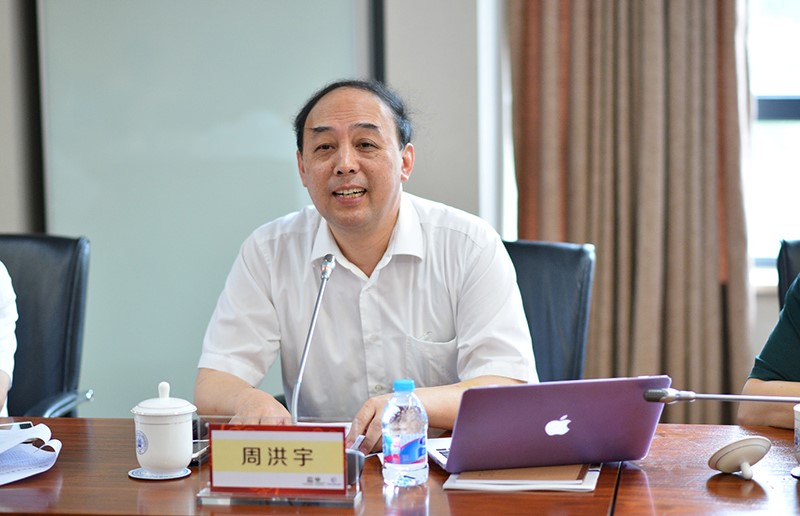
Professor Hongyu Zhou,
Deputy Director of Standing Committee of the National People's Congress in Hubei Province and Dean of the Yangtze River Education Research Institute
The participants focused on the deep discussion of the two major topics which are problems and countermeasures of education and rural development and information technology boosts China's rural education development. Professor Hongyu Zhou shared the report on the theme of "Information Technology promotes the balanced development of weak school education in remote areas". He believed that it was necessary and urgent to promote the balanced development of weak school education in remote areas by informatization and it is feasible and operable, which has been explored in Western developed countries. In China, we should improve the leadership system of "collaborative advance", establish a "multi-participant" operation mechanism of educational informatization construction; gather high-quality educational resources, strengthen the facilities construction of information public service platform; start the implementation of compulsory education balanced development plan for strategic breakthrough in the central and western concentrated contiguous poverty regions; set up pilot areas as demonstration zones.
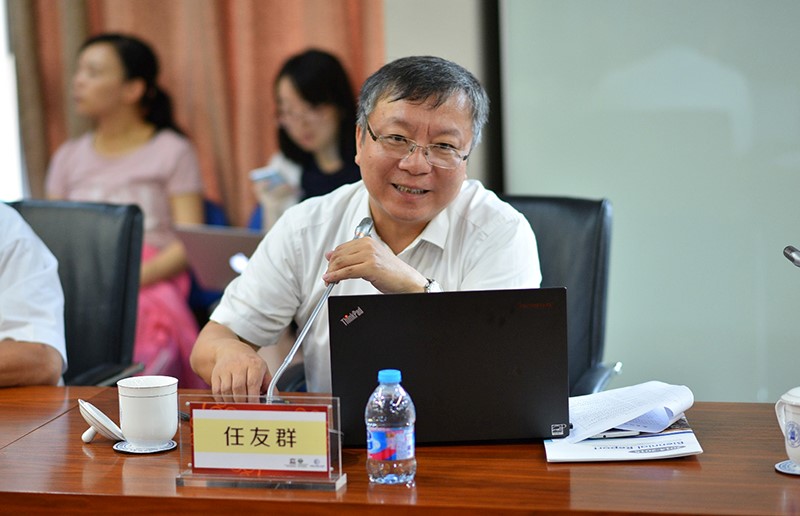
Professor Youqun Ren, Municipal Committee Members of Shangrao city, Jiangxi Province, Deputy Mayor of the municipal government and Deputy Secretary of party committee in East China Normal University
Professor Youqun Ren centered on the " Internet plus education accurate poverty alleviation in Shangrao City, Jiangxi Province, " case to share the "exploration of Internet plus education accurate poverty alleviation in poor counties" for everyone, and proposed that the Internet and information technology are necessary to promote "education accurate poverty alleviation" in rural poverty areas. Specifically speaking, we must first do a good job of top - level design of educational informatization and pilots first and also pay attention to play the effect of polymerization, dilute the cost to improve efficiency; Second, we should make full use of the existing development foundation, shift the focus of the education informatization from construction to application and service; handle the relationship between the platform and the port. In addition, we must adhere to the principles of low cost, low threshold and high efficiency. It is essential for improving education to continue to increase investment and also make good use of the existing inputs.
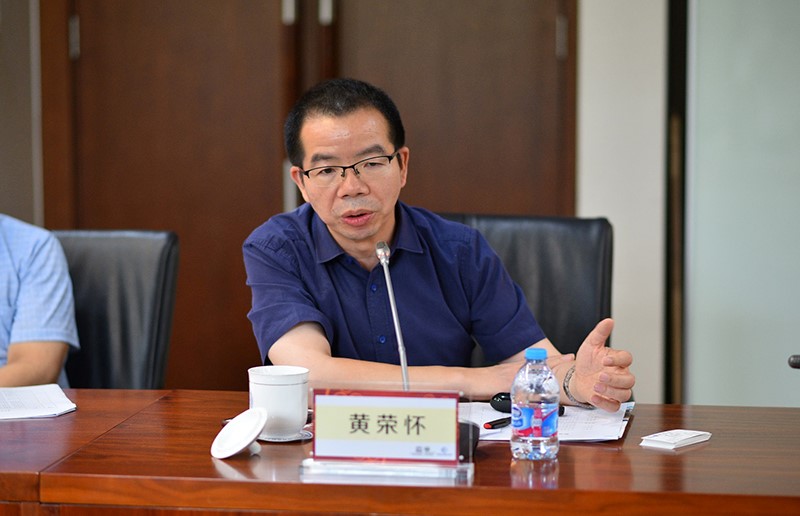
Professor Ronghuai Huang, Director of UNESCO Research and Training Centre for Rural Education, Dean of Smart Learning Institute of Beijing Normal University
Professor Ronghuai Huang shared the problems and countermeasures of education and rural development in the new period. He discussed the rural education problem under the historical background and the international context, reviewed the development of rural compulsory education in China Since the reform and opening up, including policy measures of rural education at different stages of development, the achievements and the main issues under the framework of educational system, educational finance, educational contradiction and development model. In addition, under the framework of the United Nations 2030 Agenda, he made a comparative analysis of the development of rural education in the world's nine most populous countries (E-9) to explore how does the Chinese rural education, as an important sample of the world's education, disseminate China's voices, tell Chinese stories, construct basic research framework and field, introduce and learn from international rural education experience and methods and export rural education achievements and experiences under the framework of UNESCO.
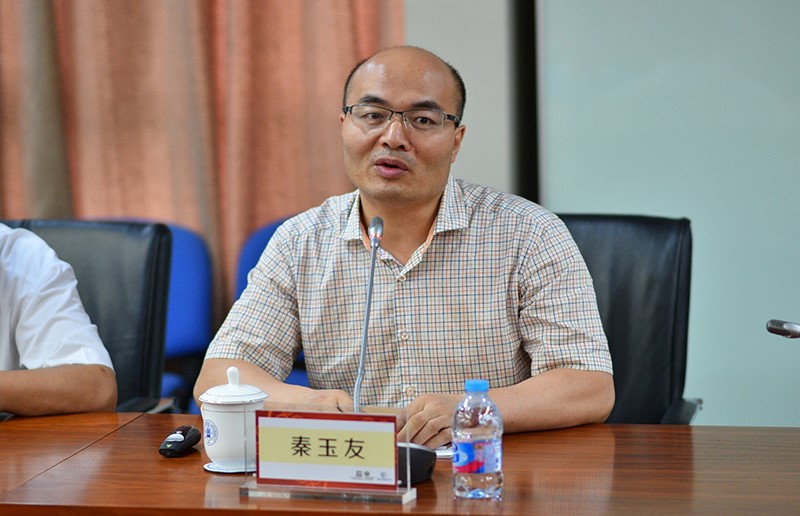
Professor Yuyou Qin, Deputy Dean of China Rural Education Development Research Institute, Northeast Normal University
Professor Yuyou Qin centered on the theme of "urbanization of education: alienation and coping ideas" to point out that the following problems are the three big factors influencing the alienation of education urbanization: the difficulty of urban education expansion and accompanying children of the rural workers entering school, big class in counties and towns are highlighted and the big cost of going to urban school, small scale of rural schools and troubles of student retention. He also said that the key to solve problems is not only to insist on the thinking of different characteristics of urban and rural education to promote the balanced development of urban and rural education, but also the establishment of problem-friendly governance model of education urbanization in order to promote the rapid development of urban education.
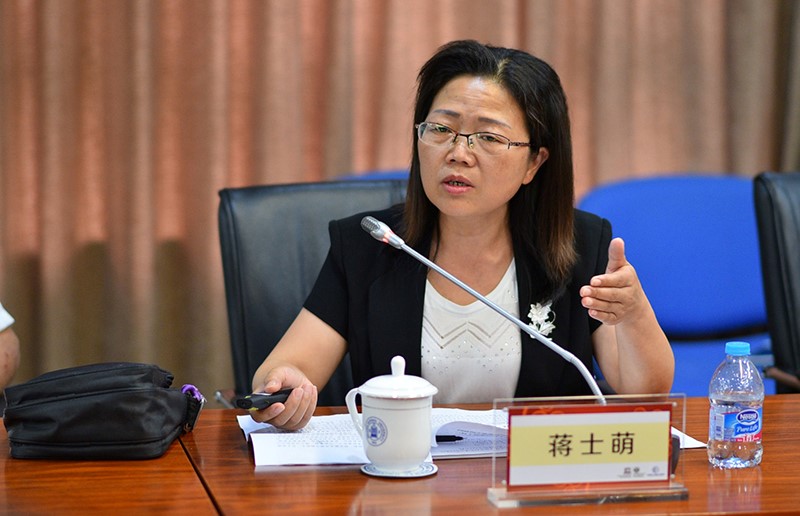
Shimeng Jiang, Director of the Education Bureau in Fuquan City, Guizhou Province
In the sharing of informatization practice of Fuquan City, Shimeng Jiang pointed out that the bottlenecks restricting the development of Fuquan education includes the less attractiveness of principal position, the rigidness of school staffing management, the inflexible incentive mechanism and the high outflow proportion of quality students and so on. To solve the problems, Fuquan city explored the development path of "four breaks and four establishments" and established "responsibility system" for official ranks, "appointment system" for staffs, "dynamic system" for personnel, "combination" encouragement and other initiatives, making the community's recognition of the schools significantly improved.
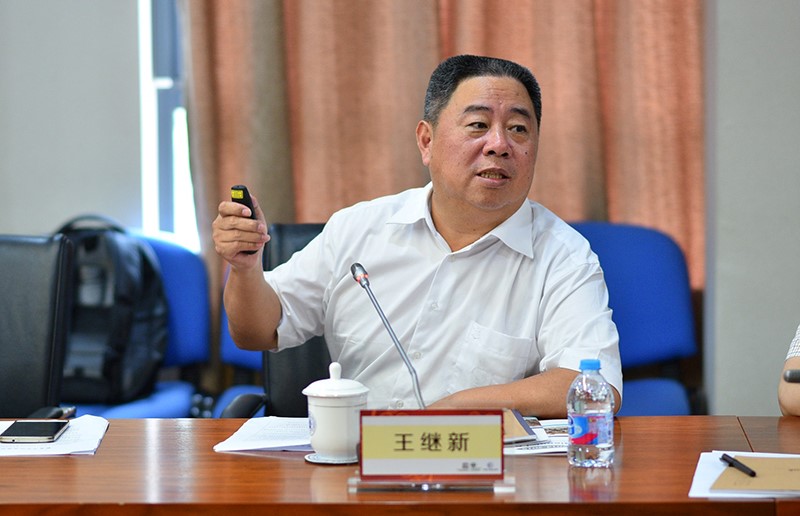
Professor Jixin Wang in Central China Normal University
Professor Jixin Wang spent three years to make tracking observations and evaluations for more than 700 students of central schools and teaching points in Xian'an county in Hubei, including the students who need to follow digital school management and those who needn't. Through a large number of data analysis and researches of different teaching scenes, Professor Jixin Wang then designed and implemented the targeted matching teaching model, such as synchronous mixed classroom mode, synchronized interactive classroom mode, and multimedia-based teaching mode, which can basically solve the problems of insufficient teaching points and classes. Combined with the research and practice of other counties, he also put forward four modes, namely, the digital school model, the double teacher teaching mode, the organized MOOC mode and the full coverage of digital resource mode, which are effective in the promotion of rural education by educational informatization.
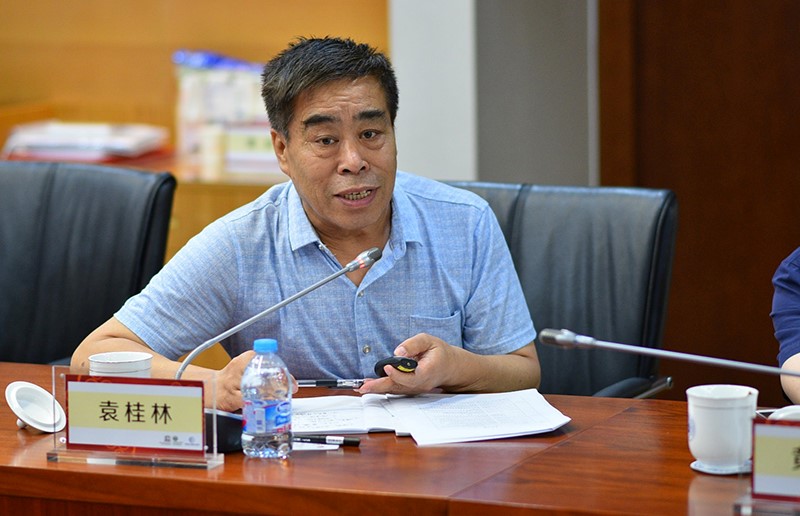
Professor Guilin Yuan in Beijing Normal University
During the analysis of the overall development of rural education and policy system, Professor Guilin Yuan pointed out that the problems of urbanization and education of accompanying children of the rural workers are still long-term goals. To eliminate the disparities in administrative subordinate relations, policies and systems should focus on the allocation of resources between the counties and schools, with particular attention to the two vulnerable groups of rural teachers and left-behind children.

Professor Kekang He in Beijing Normal Univesity
At the symposium in the morning of May 26, representatives from different countries had an in-depth discussion on the issues of Industrial 4.0 Framework, the ground plan of international alliance for open education resources, the construction of open educational resources platform and cooperation mechanism. All the representatives were looking forward to the future cooperation.
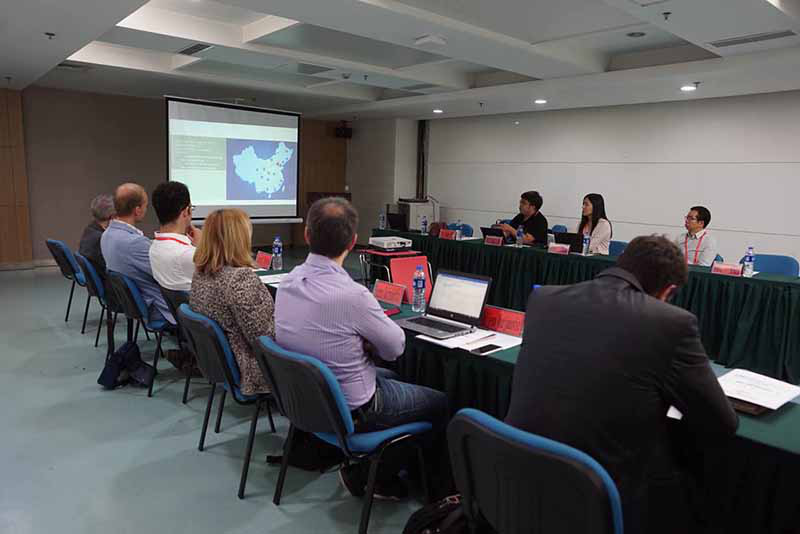
Construction Seminar of International Alliance for Open Educational Resources
Professor Kekang He attended the forum. His team has taken root in first-tier rural schools for decades and witnessed the tremendous role of information technology in boosting the development of rural education in China. He mentioned that the development of rural areas had three steps: poverty alleviation, well-off and wealthy and the education is the same. How to achieve the balanced and high quality development of basic education? The information technology had brought it great operability. Finally, the experts shared the exchanged based on the promotion of balanced development of weak schools in remote areas by informatization, model and policy of the support of informatization on the balanced development of county education, education urbanization and other typical cases. They also made an in-depth research from different perspectives.
In the discussion, the experts agreed that, although the country's policy, resources and supporting measures gave a huge support to rural education, the development of rural education is still facing various challenges, and information technology will be able to promote the realization of fair and quality rural education. However, there are many difficulties to overcome in the use of information technology to promote the development of rural education. Our government, relevant agencies, experts and scholars are needed to coordinate the top design and orderly advance in real needs and specific environment. In this regard, a lot of successful low-cost and propagable models and experiences have been worked out throughout the country and there are many cases worth refining, summarization and promotion.
In view of the important mission of the Center for Rural Education is to provide services to UNESCO Member States, considering the need to cooperate with the implementation of The Belt & Road Strategy, the meeting also discussed how to "tell Chinese stories and share China's experience". Experts attending the meeting highly agree on the initiatives to introduce the experience of China's rural education development to foreign countries, and they put forward improving suggestion based on the framework and path proposed by Director Ronghuai Huang. The Center will design and launch a series of reports on the basis of the discussion and seek a Chinese perspective for the implementation of the international education agenda.
UNESCO International Research and Training Centre for Rural Education is the only international institution established by the Chinese government and UNESCO for the specialized research, training, information dissemination and networking of developing countries in the field of "education for rural development". The Center was established in 1994 in Baoding, Hebei Province. In order to further enhance its international influence and to better serve the UNESCO Member States, the Center moved to Beijing Normal University in 2008. It focuses on the implementation of a series of projects and activities in four areas: skills development, teacher education, gender equality and women's leadership, and information technology for rural education development.
(UNESCO International Research and Training Centre for Rural Education)

